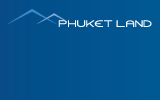Further Reading:
Foreign Freehold Condominium Premiums

I am very close to purchasing a condominium in Phuket. The vendor,
who is the first owner (rather than the developer) is a non Thai, who
purchased the unit in the name of a Thai company established especially
for the purpose. I am told it would still be possible for me to purchase
this building as a foreign ownership freehold unit, but it will cost
me about 7% more (due to the greater transfer fees and taxes involved
in the transaction) than simply buying (the shares in) the Thai company
that currently owns the unit. In your opinion would I be wise to pay
this premium?
Under a 1991 amendment to the Condominium Act, foreign nationals became
eligible to own outright freehold of up to 40% of the units within a
condominium development in Thailand. While this is of benefit to some
potential foreign purchasers, there are generally many more foreign
than Thai buyers for Phuket’s resort orientated condominiums. This
has meant that foreign buyers (and the developers) of popular condominiums
have had to come up with alternative ways of buying (selling) these
units once (or even before) the foreign allowances was used up.
Generally there have been two approaches to this problem. The first involves leases and the second involves a Thai nominee. The lease approach is perfectly sound and secure, and is frequently used for land and houses, but has one problem when used for condominiums. That problem is that all lease income is taxable, and while there may be ways to offset that against depreciation of assets during the first twenty years of a lease, there is really no offset for income attributed against lease renewals. Where the lease may only be for land (with the house purchased outright) this may not be all that significant, but where the condominium is a singled titled entity, all the properties value becomes taxable. Whoever is deemed liable for these taxes (it is usually the lessor, for all charges subsequent to the initial lease registration) one way or other they will be translated back into additional costs.
The more tax efficient alternative, is that freehold purchase is made by a Thai nominee. Where you happen to have very have close family or friends in Thailand this approach may be feasible (although not always without risk). An alternative that several developers have promoted is that the buyer establish a local Thai company, which is owned by the beneficial purchaser (49%) and by nominee Thai shareholders (51%).
This scheme was often presented as a real bonus to buyers, because when they wish to sell the property they can do so simply by sale of the shares in the company - saving money, since there is no tax or fees applicable to sale of shares, while there would be for the sale of real estate.
Without even going into the merits and legalities of nominee corporate ownership or the annual cost of maintaining a Thai company, there is a very real flaw in this argument - and this is that there are significant risks assumed in purchasing the shares and taking over the management/directorship of a Thai company. That risk, is that the company (and in many cases the directors individually) will be wholly (and without time limitation) civilly and criminally liable for any (undisclosed) actions of the previous directors of the company. If the previous directors are well know local residents, this may not be such a risk, but if, as is likely they are foreign nationals, living abroad, and possibly hard to trace in the future, they will probably be, to all practical purposes, outside the jurisdiction of a Thai court.
As such a clear foreign freehold ownership is always the strongest (and most easy to sell) form of condominium ownership. As with the stock exchange of Thailand (whose share are similarly divided into a fixed proportion of foreign ownership allowed units) condominiums with foreign freehold ownership will typically trade at a premium over the equivalent Thai unit. Clearly the amount of the premium is a matter of supply and demand, but in many popular buildings this premium can be as much as 20 to 30%.
So, Yes, I would suggest that you pay the small premium (while there is still a possibility to do so) and I believe that the premium will yield you valuable dividends not only in peace of mind, but also in the improved value that you will obtain should you ever decide to sell your new condominium.


